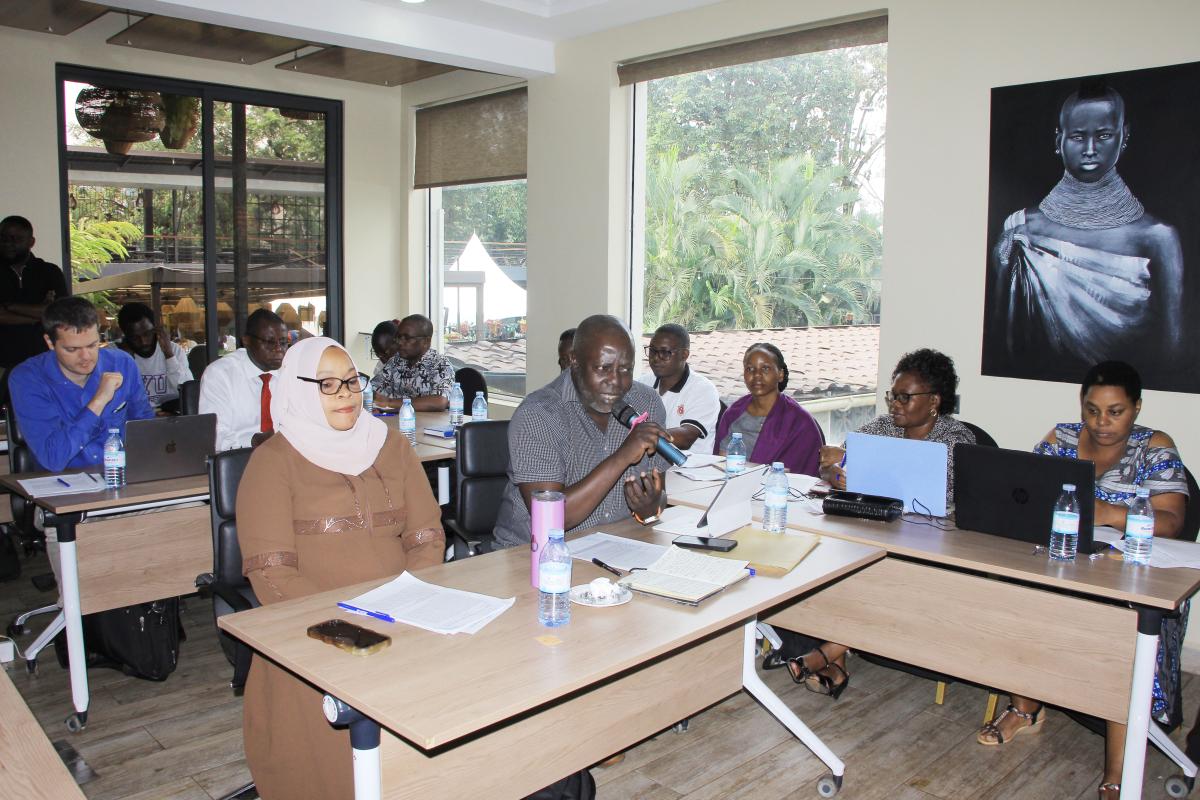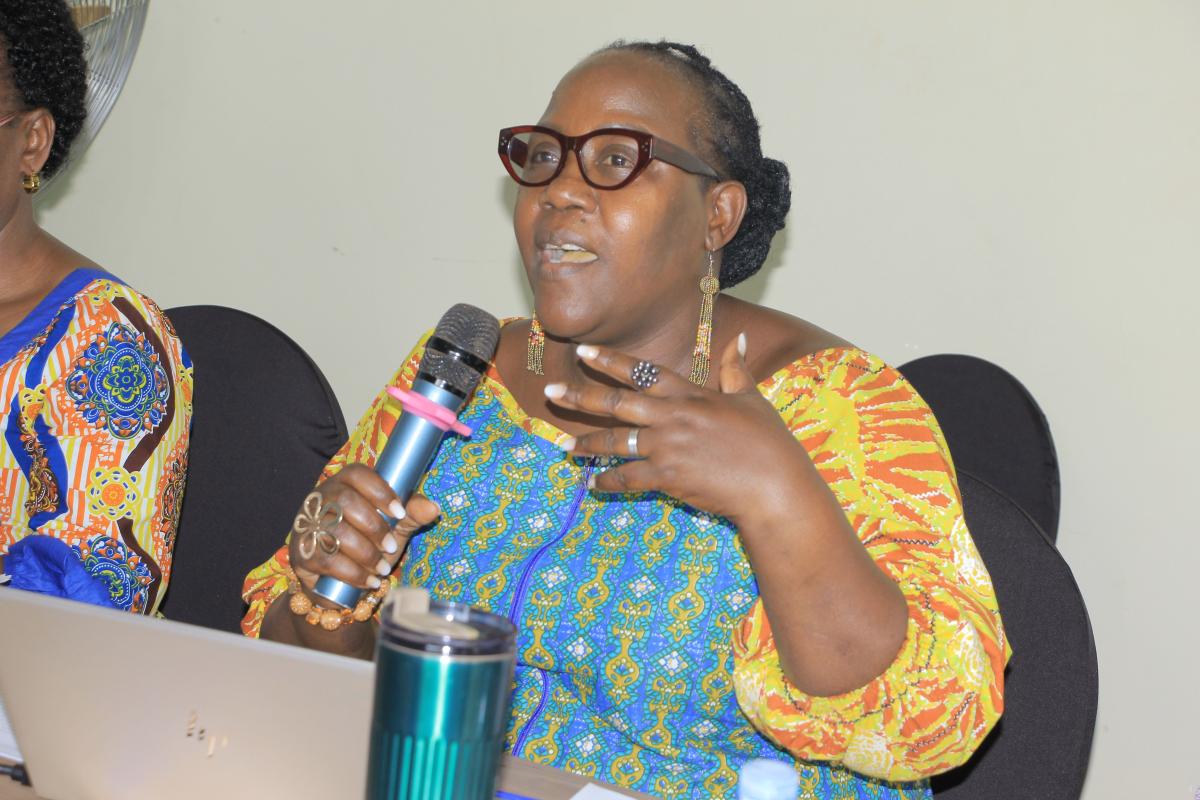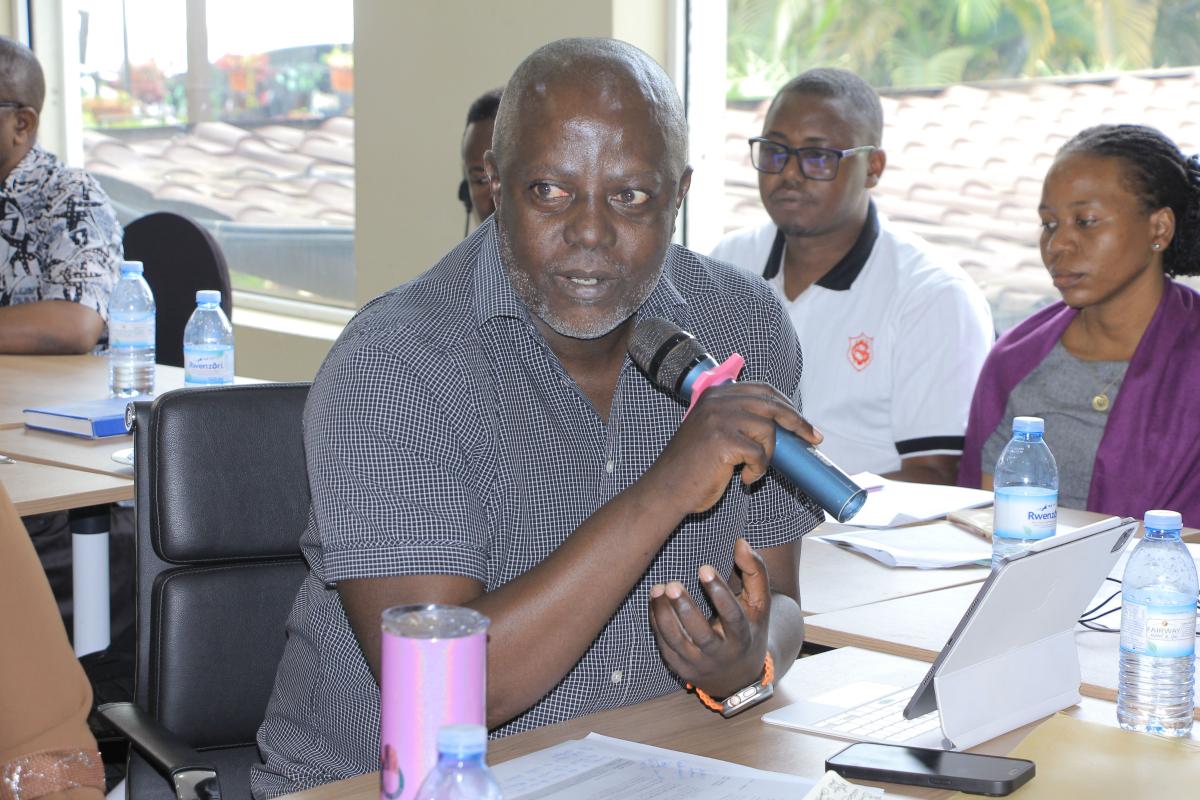
Archives and the process of archiving are key parts of identity formation, nation-building, struggles for community justice, the consolidation of state power, and resistance to power.
Archive is one of the most capacious concepts in the humanities and social sciences. To “archive” or to consult “the archives” are often used to authorize evidence and legitimate certain knowledge at the expense of others. In an effort to re-centre the politics of knowledge from the Global South, some scholars have attempted to expand or re-imagine archival practice.
From 2022, the College of Humanities and Social Sciences (CHUSS) has been implementing a three-year Archiving, Memory and Method (AMM) from the Global South project that has studied the intersection of archives with communities, institutions and academia. The project is expected to come to an end in December 2024. Spearheaded by a core team composed of Dr. Edgar Taylor, Dr. Edgar Nabutanyi, Dr. Charlotte Mafumbo, Dr. Levis Mugumya, Dr. Pamela Khanakwa and Prof. Josephine Ahikire, the AMM project has been centred on research and mentorship for both staff and students.

The first deliverable of the AMM from the Global South project is book that will be published by Makerere University Press by December 2024.In terms of professional growth and capacity building, the project is supporting 18 staff who hold PhDs (Doctor of Philosophy degrees), and two (2) students who are studying PhDs, and eight (8) studying MA degrees.
As the project comes to an end, CHUSS is organizing an international conference on the relationship between archiving, memory and method from the Global South. The three-day AMM International Conference will be held at Makerere University from 17th -19th October 2024.
The Call for Conference papers released in April 2024 led to submission of over 75 abstracts from scholars, archivists and community practitioners from the different parts of the world.
The Principal Investigator, Prof. Josephine Ahikire explained that whereas the AMM Conference Core team has maximally utilized the previous months to review the 60 abstracts from other scholars, it was important for this team, which is the source of 15 abstracts to meet and specifically focus on critiquing their abstracts.

Consequently, on Thursday 22nd August 2024, the AMM Conference Core team participated in a symposium, providing an opportunity to each team member to present his or her work in a plenary session, followed by an in-depth discussion of his or her work by the participants, hence receiving instant feedback.
Delivering the welcome remarks, the Principal Investigator, Prof. Ahikire thanked the AMM Conference Core team for accepting to dedicate time to listen to presentations, engagements and feedback sessions aimed at enriching the abstracts and papers ahead of the upcoming International Conference. She stressed the significance of the symposium admitting that it intended to ensure researchers are on course as well as living to the practice of peer mentoring.
She applauded Mellon Foundation for coming on board to fund the work and research in the field of archiving, memory and method (AMM) noting that such areas do not always attract funding from national and international bodies/partners. “I am grateful to Mellon Foundation that allowed us to dream and put ideas together as a team from the College of Humanities and Social Sciences. This funding has elevated the level of humanities and social sciences through undertaking of research central to people’s lives as well as training staff in the College at PhD and Masters,” she remarked. The Principal Investigator also thanked the University and College management for the facilitation and the conducive environment for research and other academic engagements.
The Project Coordinator, Dr. Edgar Nabutanyi noted that archiving, memory and method underscores the power dynamics at play when dealing with de-colonization, history, knowledge, museums, artefacts, culture, language, and among other complexities in the world that we live in. During archiving and documentation, researchers, scholars and students are presented with questions, “Whose archive, whose information, and, who is exactly telling the story? This is pertinent because in many societies, archives were institutional tools and ideological prisms of colonial control.

An overview of the 15 abstracts that were presented and reviewed during the symposium highlighted the need to de-colonise Africa. Listening to the presentations, the different researchers and scholars revealed that interactions and engagements with people and the communities provided lived experiences (and in most cases first-hand information from people who are still alive) on pertinent issues such as African knowledge, artefacts, museums, art pieces, symbols, storytelling, dances, music, language and other forms of culture on the African continent.
The AMM from the Global South Project therefore presents to Makerere University through the College of Humanities and Social Sciences, a golden opportunity to document this knowledge from Africans as well as lived experiences from different communities.
In the presentations from the AMM Conference Core team, participants observed that patriarchy, which is entrenched in the African culture was still a dominant force, and as such, significantly influenced the quest for gender equality and equity.
The participants implored researchers or scholars to deal with the intriguing questions of: Whose archive? Whose Information? Who is the source of the information? They emphasized the need to go an extra mile to listen to the true African stories and experiences.
The participants prioritized the discourse on returning the artefacts that were “stolen” or “confiscated” from Africa to different parts of Europe. The symposium resurrected the debate on the need for Europe to return the artefacts to the African continent.
This followed watching a video containing a powerful keynote address delivered by Chimamanda Ngozi Adichie at the Humboldt Forum.
Titled: Chimamanda Adichie Exposes Stolen African ‘Art’ in European Museums, the message details the painful experience of Africans losing their treasured symbols, artefacts and spiritual identities to Europe. African art tells the story or tradition or memories. She noted that missionaries were very keen on destroying African art. They would only refer to it as African magic. She emphasized that we cannot be dismissive of beliefs because they are unknown to us.
She stressed that there should be decolonization of cultural Heritage with a Perspective on Artifact Return, Ownership, and Historical Context.
She reveals the psychological impact of colonialism on African identity and the need for inclusive negotiations regarding artifact return and emphasized the importance of redefining historical narratives to acknowledge African contributions. She challenged the power dynamics in ownership dialogues.
She emphasized the need to tell European history presenting the truth. The story about colonialism in Africa is one-sided, which leaves out atrocities. This is a lie. She called upon Europe to own the stories of colonialism and its evils to Africa. She noted that all countries have parts of their past that they are not proud of, that they would rather forget, but it takes courage to face those parts and bring in some light. She stated that although we cannot change the past, we can change our blindness to the past.
“With respect to African art, we should develop the courage to say, that about art acquired illicitly, this is not ours, tell us what to do with it,” emphasized Chimamanda.
She questioned why the term “ethnological” is used for art from certain parts of the world, and not art for other parts of the world. She is also concerned that the language itself (ethnological) already suggests a hierarchy of value.
The Keynote Speaker highlighted the complex issues surrounding the return of cultural artifacts, ownership, and historical context, with a focus on African cultural heritage.
“When we talk about this art that was stolen, we are told that this art cannot be returned to Africa because Africans will not take good care of them. It is not merely condescending to say that I cannot return what I stole from you because you will not take good care of it. It is also lacking in basic logic since when has the basis of ownership been taking good care of what is owned. This position is paternalistic arrogance of the most stunning sort. It does not matter whether Africans, or Asians or Latin Americans can take good care of the art stolen from them, what matters is that this art, belongs to them,” she reiterated.
Chimammanda Ngozi Adichie also urged Europe to revisit the international humanitarian law, historical processes of artifact acquisition, and economic power dynamics regarding the Stolen African artifacts.
During the symposium, AMM Conference Core team reviewed the following abstracts:
- Archival Absences: Interrogating representation of African men in colonial and missionary archives in Uganda -Dr. Amon Ashaba Mwiine.
- Memory of Bunyoro Artefacts relocated to Europe-Dr. Ann Ninsiima.
- Memory and resilience of healing traditions of two indigenous Ugandan Communities-Prof. Julius Kikooma
- Choreo-Rhythmic provenance of Baakasimba dance as a living pedagogy meaning, memories and methods: An embodied practical Workshop-Dr. Alfdaniels Mabingo
- Archival Ambivalence: Hoarding and Professionalization in Ugandan State Archives Since 1951-Dr. Edgar Taylor.
- Diachronic changes of folklore genre: an exploration of language archiving in praise Recitals-Dr. Levis Mugumya
- Between dialogical imaginations and archival discourse in the context of the Ganda Folktale-Dr. Eve Nabulya
- Folk Collection of archival forms of Language-Dr. Celistino Orikiriza
- Joy Kwesiga Facing the Mak@100 Monument: Memory Moments in Makerere’s quest for Gender Equality-Prof. Josephine Ahikire
- Humour, Satire and Socio-Political Commentary in Selected Emmanuel Tumusiime Rushedge’s (Tom Rush’s Old Fox Columns)-Dr. Edgar Nabutanyi
- “The Government says that we are running our land”: Land Tenure concerns in colonial Bugisu-Dr. Pamela Khanakwa
- Abazeeyi B’e Bama: Memory, Honour and Compensation of Uganda’s World War II Ex-Servicemen, 1945 to 2021- Dr. Zaid Sekito, Dr. Christopher Muhoozi, and Dr. Deogratius Kyanda.
